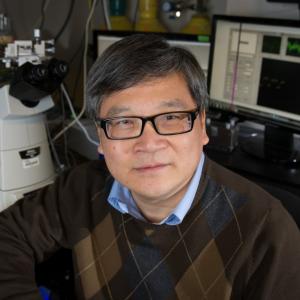Rudolph Gleason

Rudolph Gleason
Professor, Mechanical Engineering and Biomedical Engineering
Joint Appointment in the School of Biomedical Engineering
Rudolph (Rudy) L. Gleason began at Tech in Fall 2005 as an assistant professor. Prior, he was a postdoctoral fellow at Texas A&M University. He is currently a professor in the School of Mechanical Engineering and the School of Biomedical Engineering in the College of Engineering. Gleason’s research program has two key and distinct research aims. The first research aim is to quantify the link between biomechanics, mechanobiology, and tissue growth and remodeling in diseases of the vasculature and other soft tissues. The second research aim is to translate engineering innovation to combat global health disparities and foster sustainable development in low-resource settings around the world. Gleason serves as a Georgia Tech Institute for People and Technology initiative lead for research activities related to global health equity and wellbeing.
404-385-7218
Office Location:
TEP 205
- Biobased Materials
- Molecular, Cellular and Tissue Biomechanics
- Regenerative Medicine
Cardiovascular mechanics, soft tissue growth and remodeling, and tissue engineering
IRI Connections:









